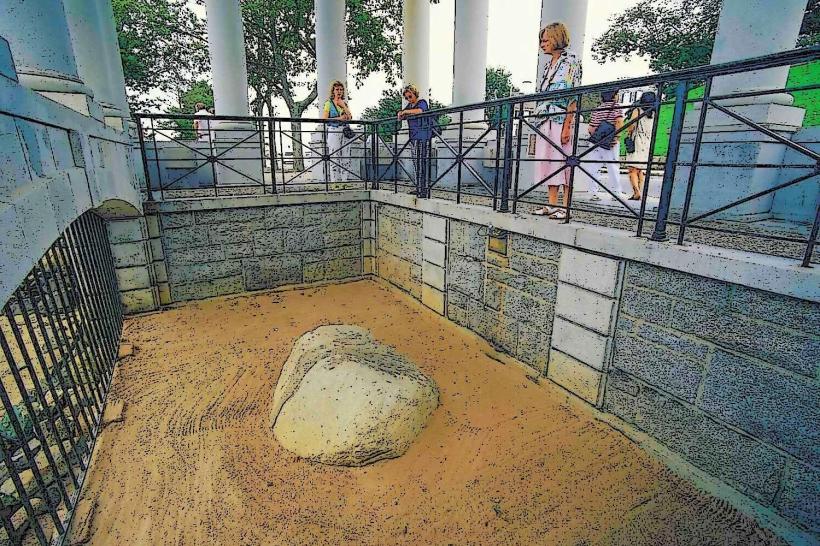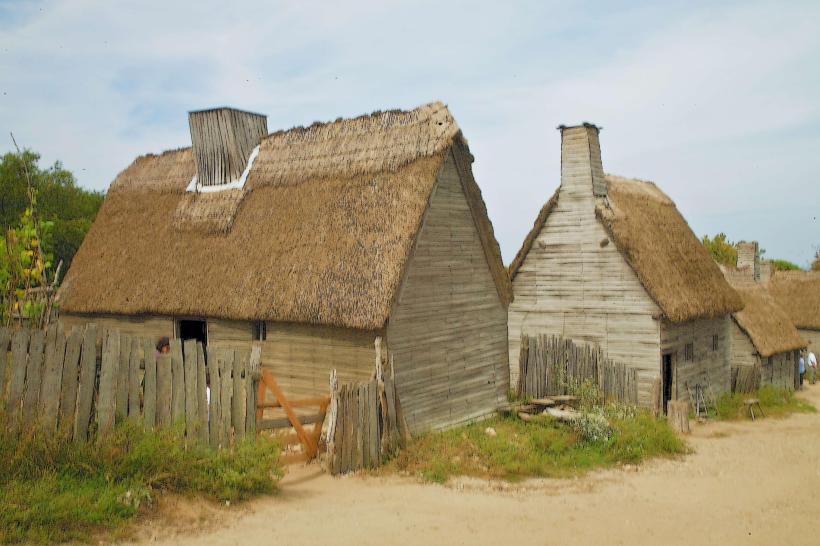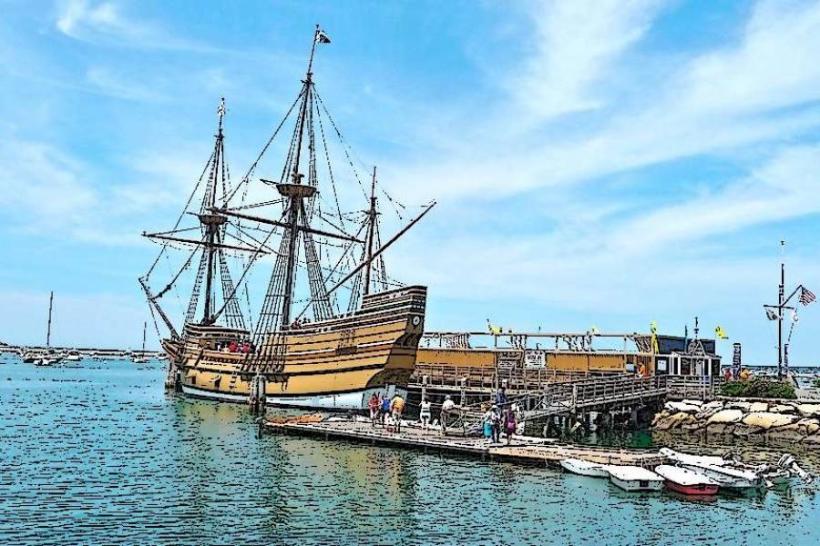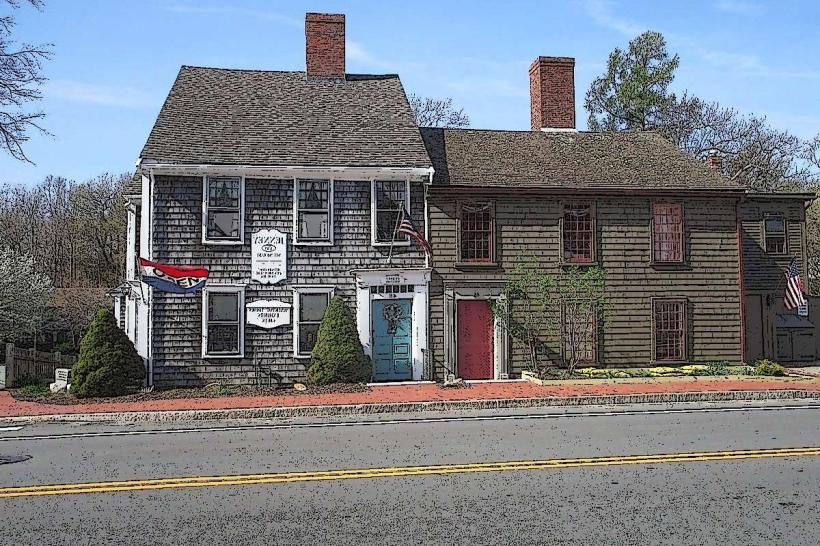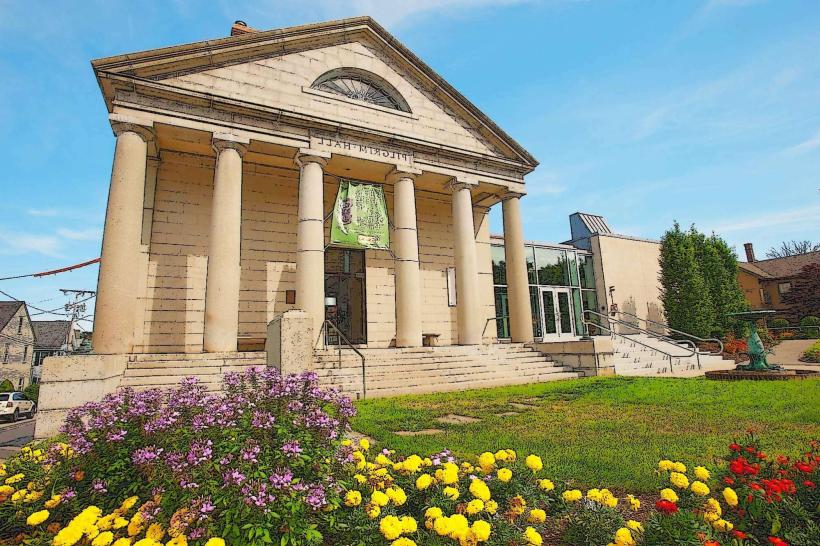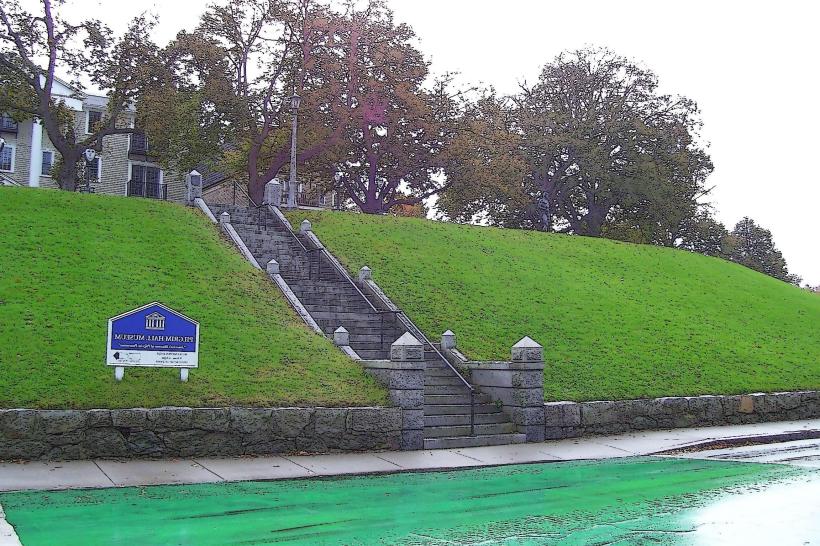Information
Landmark: Myles Standish MonumentCity: Plymouth
Country: USA Massachusetts
Continent: North America
Myles Standish Monument, Plymouth, USA Massachusetts, North America
The Myles Standish Monument is a prominent historical landmark and state reservation located in Duxbury, Massachusetts. It is dedicated to Captain Myles Standish, the military leader and one of the founding figures of Plymouth Colony. The monument commemorates Standish’s critical role in the colony’s early defense and development, serving as a lasting tribute to his leadership and legacy in early American history.
Historical Significance
Captain Myles Standish arrived with the Pilgrims aboard the Mayflower in 1620 and quickly became the colony’s military commander. His duties included organizing defenses, negotiating with Native American tribes, and leading exploratory expeditions. Standish was instrumental in safeguarding the fledgling colony through strategic planning and military action, playing a vital role in its survival during the uncertain early years.
The decision to erect a monument in his honor reflects the respect and admiration held for Standish as a symbol of courage, resilience, and determination in the face of hardship. The monument was proposed in the 19th century as part of a broader movement to commemorate the Pilgrims and their contributions to American identity.
Construction and Architecture
The Myles Standish Monument was constructed on Captain’s Hill, the highest point of Standish’s original farm, providing a commanding view of the surrounding landscape. The site’s elevation was deliberately chosen to symbolize Standish’s role as a vigilant protector of the colony.
Height and Structure: The monument stands 116 feet tall and is built entirely of granite, a durable and majestic material reflecting the monument’s solemn purpose. Atop the shaft stands a 14-foot-tall statue of Myles Standish, depicted holding the Plymouth Colony charter, symbolizing his leadership and authority.
Design: The monument exhibits a classical design with a sturdy, tapering tower that rises from a broad base. The use of granite quarried from nearby areas adds local significance and visual harmony with the New England landscape.
Cornerstone and Dedication: The cornerstone was laid on October 7, 1872, in a ceremony that drew approximately 10,000 people, underscoring the monument’s importance to the community and the nation. Construction was completed in 1898 after several decades of fundraising and work, supported by public donations, state funds, and notable contributions from figures such as President Ulysses S. Grant.
The State Reservation
The monument is situated within the Myles Standish Monument State Reservation, a 30-acre park managed by the Massachusetts Department of Conservation and Recreation. The reservation preserves the natural environment around the monument and provides visitors with recreational opportunities amid the historic site.
Visitor Experience
Climbing the Monument: Visitors can ascend 125 steps inside the monument to reach a small observation platform beneath the statue. From this vantage point, panoramic views stretch over the South Shore region, including sights of Duxbury Bay, Plymouth Harbor, Duxbury Beach, local lighthouses, church steeples, and the distant Blue Hills.
Scenic Trails: The reservation includes several walking and hiking trails through woodland areas. These trails offer a quiet, natural setting where visitors can enjoy local flora and fauna, including white-tailed deer, squirrels, and a variety of bird species.
Picnic Facilities: During the warmer months, picnic tables are available, allowing visitors to relax and dine surrounded by the serene park environment.
Accessibility and Practical Information
Location: The monument is located off Crescent Street in Duxbury, Massachusetts, approximately 35 miles south of Boston and close to Plymouth, making it easily accessible to residents and tourists.
Hours of Operation: The state reservation and monument typically open seasonally, from Memorial Day weekend through Labor Day, on weekends from 9:00 AM to 5:00 PM, weather permitting. The monument may close during inclement weather, particularly due to wind or rain, for safety reasons.
Admission: Entry to the monument and park is free, encouraging broad public access.
Accessibility: Due to the interior stairway and design, the monument is not wheelchair accessible. Visitors should be prepared for a moderately strenuous climb to reach the observation platform.
Nearby Historical Sites
Myles Standish Burial Ground: Located nearby in Duxbury, this historic cemetery is the final resting place of Captain Standish and many early Plymouth Colony settlers, offering further context to Standish’s life and the colonial era.
Duxbury Bay and Beach: The reservation’s proximity to coastal landscapes allows visitors to combine history with natural exploration, including nearby beaches and waterfront areas.
Cultural Importance
The Myles Standish Monument stands as both a memorial to a key colonial figure and a symbol of early American perseverance and leadership. It embodies the historical narrative of the Pilgrims’ struggle to establish a foothold in the New World and the ongoing effort to honor their legacy.
The monument’s commanding presence and sweeping views invite reflection on the past and appreciation for the region’s heritage, connecting modern visitors with the foundational stories of American settlement.
Summary
The Myles Standish Monument in Duxbury, Massachusetts, is a towering granite tribute to one of Plymouth Colony’s most influential leaders. Rising 116 feet atop Captain’s Hill and crowned by a 14-foot statue, the monument commemorates Standish’s military leadership and vital role in the colony’s survival. Surrounded by a 30-acre state reservation with trails and picnic areas, the site offers visitors a blend of historical significance and natural beauty. The monument’s panoramic views, rich history, and cultural symbolism make it a meaningful destination for those interested in early American history and the enduring legacy of the Pilgrims.

